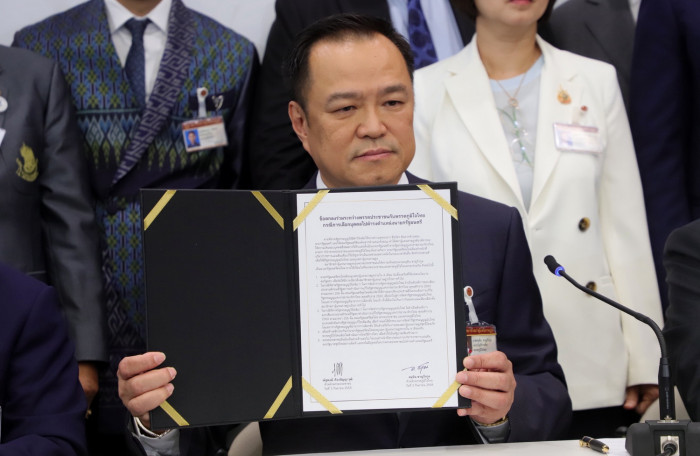Thailand has a new prime minister. Anutin Charnvirakul, leader of the Bhumjaithai Party, has assumed the premiership, the country’s third in less than three years since the 2023 general election.
His premiership, however, comes under extraordinary conditions. Under a pact with the People’s Party, Mr Anutin must dissolve parliament within four months of taking office. That would set the stage for fresh elections in April next year, meaning this administration has, at most, six to seven months in power, including the caretaker period.
Such a brief tenure leaves little room for politics-as-usual. The government cannot afford to treat this as a stopgap arrangement. Urgent challenges, ranging from economic malaise to security concerns, demand clear decisions and effective execution. If Mr Anutin governs with genuine commitment, transparency and professionalism, even a short-lived administration could leave a positive legacy and influence the coming election.
The first test is not policy but the list of cabinet ministers. Too often in politics, ministries are allocated based on rewards in the patronage system. While coalition realities demand some compromises, this is no time for complacency or cronyism. Competent, capable ministers are urgently needed, particularly in economic portfolios.
Mr Anutin’s nomination of outsiders, respected experts to lead the finance, foreign affairs and energy ministries, is a welcome signal: a breath of fresh air when Thailand faces intense economic pressures both at home and abroad. But other ministries, often dismissed as secondary by politicians, are equally vital for the nation’s long-term competitiveness. Education, higher education and digital economy, in particular, shape the country’s future capacity. Yet these portfolios have long been neglected, mismanaged or reduced to bargaining chips in coalition deals. Mr Anutin must break with that habit.
Economic hardship remains the most pressing challenge. The cost of living has stayed stubbornly high since the pandemic, while incomes stagnate or decline. Small businesses nationwide complain of weak consumer spending. Delays in government’s budget disbursement only rub salt into wounds.
With limited time, the Anutin government cannot rely on grand new spending schemes, but must at least accelerate budget execution and implement sound economic measures, not unproductive populist giveaways.
Investor confidence, fragile and shaken by political instability and global trade tensions, poses another challenge. Reviving confidence will require credible action, not slogans. Tourism, Thailand’s most important economic engine, is also falling short. The target of 39 million visitors this year is unlikely to be met. With high season approaching, the government must act to restore Thailand’s appeal as a global destination.
Beyond economics, the government must also show its commitment to the rule of law. Allegations surrounding the Khao Kradong land scandal and the Senate election controversy, both linked to the Bhumjaithai Party, are a litmus test of Mr Anutin’s credibility. The government must allow the legal process to proceed.
Six or seven months might not be long; but it is long enough to make a mark, by tackling urgent problems, and laying the groundwork for reforms. The burden on Mr Anutin is heavy. Yet if he leads with integrity, his government may accomplish more than many that lasted far longer.



